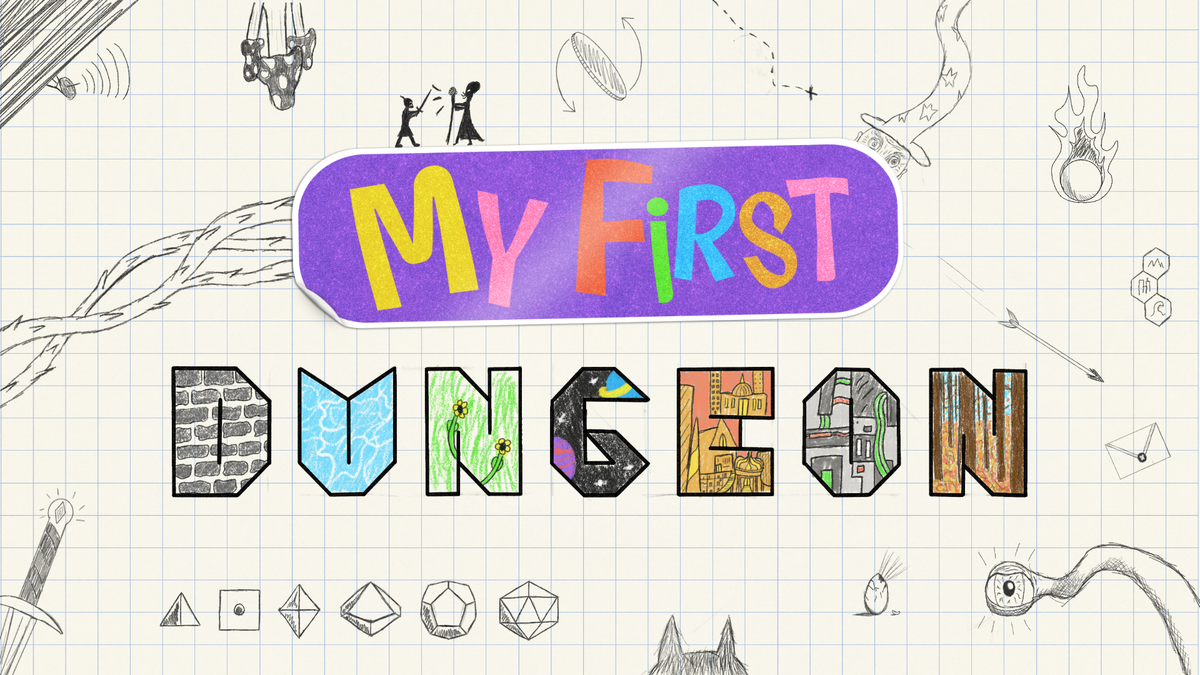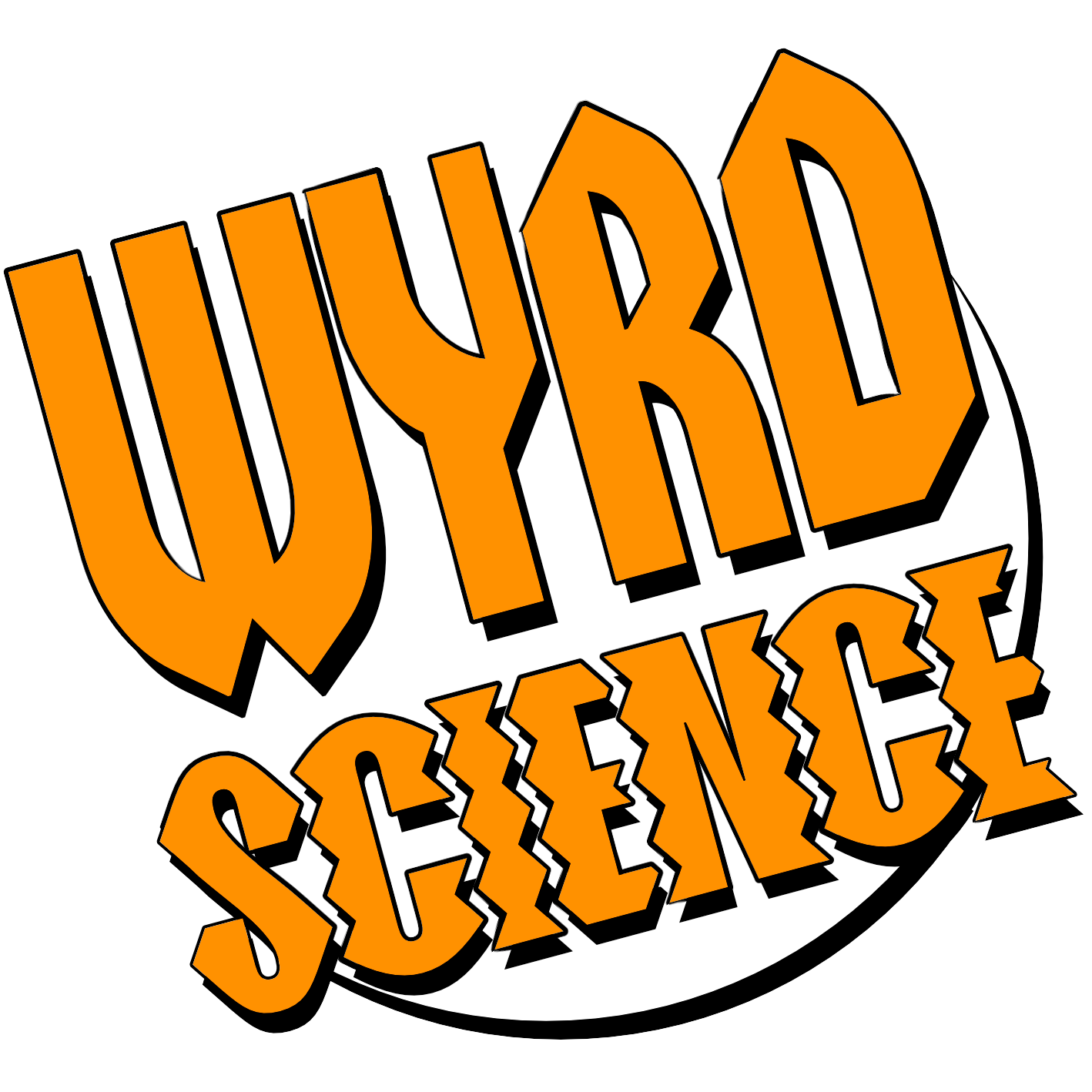
With certain actual play shows capable of selling out arenas it’s fair to say that the medium is the public face of RPGs these days. And for many that means they will also be their first exposure to the delights of dungeons, dragons, squid headed abominations and other such strangeness.
One show that is taking that responsibility seriously is My First Dungeon, to find out more we spoke to the show’s co-founder, Brian Flaherty.
Hi Brian, can you tell us a bit about who is involved in the show and how you got together?
Brian Flaherty: The core team behind My First Dungeon is me, Elliot Davis, Shenuque Tissera, and Abby Hepworth. We were the GMs for the first four seasons of the podcast.
Abby was the DM for the first season of the show –she's also my fiancee– and ran her first game ever on mic. Shenuque was a player on another D&D podcast I ran called The Twenty Sided Podcast and came on as the GM for our second season where we played Honey Heist.
I met Elliot after he came to a comedy show I was running and we both geeked out about game design. We ended up playing his one-page TTRPG Something is Wrong with the Chickens for our third season.
After that, the four of us just kept coming together to make new seasons and we knew we had something special. We made the partnership official earlier this year by founding Many Sided Media.
Initially the plan was to have each season of the show be a new first-time DM running their very first session of D&D. But after we tried Honey Heist I fell in love with indie TTRPGs and wanted to really explore that world and all the things those games had to offer.
Can you tell us a little about the show, as it’s a bit different to many other actual play shows out there...
BH: My First Dungeon is a tabletop roleplaying podcast that helps game masters learn new games and make each one better than the last. I've always found that watching someone else learn is a great way to learn myself. Our goal is to lower the barrier to entry for GMs and players who want to try new games.
Each season consists of three parts. First, we bring together the first time GM and the creator of the game we're playing for that season and we work to alleviate their worries and fears and set them up for success in their first game. There's no better resource for someone new to a game than the person who made it.
Next we bring together a group of new and experienced players and the GM runs the session we planned. Then we add in music and immersive sound design and make the game really come to life for the audience. And finally, when the game is complete we bring everyone back to the table to talk about what went right, what went wrong, and how we can make the next game even better.
This is an incredibly entertaining show, but it's also meant to be educational. I know we're successful when I get messages from listeners telling me they just finished their first session of a new game they were nervous to try. That's what we want. To open people's eyes to all the awesome games that are out there.
As you mentioned, after your first season you've been delving more into indie RPGs, and playing games like Honey Heist and Orbital Blues. How do you go about choosing a new title to try out, is there something in particular that you look for in a game?
BH: We put a lot of care and love into this show and we look for the same thing in the games that we play. One thing that we always look for in a game is when every aspect of the design –the mechanics, the artwork, the writing, the layout– are all in service of the experience that game is trying to elicit.
We always point to 10 Candles by Stephen Dewey as a great example of this. It's a game of tragic horror and every single aspect of that game is reinforcing that experience. When games are designed that well it takes so much work off the GM's plate and sets them up for success in the same way we’re trying to do with this show.
What’s been your favourite moment so far?
BH: It's a bit cliche, but my favorite moment is always the one I'm working on right now. Honestly, all the seasons offer something different.
So if after reading this someone is going to check out My First Dungeon is there any season in particular you'd recommend they start with?
BH: DIE was our first really epic multi-episode season and tells an amazing story, Yazeba's Bed & Breakfast is a slice-of-life audio cartoon that will brighten your day, 10 Candles is a game of tragic horror where everyone dies (we also won an award for the sound design of that one). What's great about this show is that there's something for everyone.
If forced to pick a good first season, I'd say start with DIE. It's an amazing game with something for everyone and we really leveled up every aspect of the show with that season.
One of your stated aims is to "help players learn new games" so for people who are nervous about dipping into new RPG systems, what's your top tip for getting your head around a new game or introducing one to your group?
BH: There is a sign in a cafe that I frequent in the West Village that says, "Go look a fool. Tis the secret of a wise man." Put another way: Just do it. And I know, that's kind of the worst advice. It's the advice no one wants to hear because there's no trick to it. But it's also the best advice.
You will learn so much faster by just doing the thing and messing up once or twice. And if you listen to the show you'll realize pretty quickly that picking up a new game is a lot easier than you think.
The motto of My First Dungeon is "If you're having fun, you're already doing it right." That's the most important thing we want listeners to take away from the show.
Find a game you're excited about, learn it as best you can, then go and have fun. We mess up rules all the time. It has never stopped us from having fun. And in the end, that's why we started playing the game in the first place.
There's been a lot of talk about how actual play shows might develop, especially with an influx of money and outside media interest, how do you see the form evolving over the next couple of years?
BH: Oh man, I could–and do–talk about this for HOURS. I encourage you to listen to our TTRPG talk show Talk of the Table to hear my ever-evolving thoughts on this topic.
I think the thing that will start to disappear is the idea of "we're just friends around a table" that started with –and was perfected by– Critical Role. The medium has evolved beyond that. Listeners expect more than that.
Just in the podcasting world, shows like My First Dungeon, Worlds Beyond Number, Planet Arcana and Rude Tale of Magic have demonstrated what is possible with music and sound design and I think most listeners will no longer be satisfied with just hearing people play a home game. The shows that will find success are the ones that consider the audience and make them an integral part of their production process.
You can already see this happening. The new shows that are finding traction are the ones that are going that extra mile for their audience. And speaking as a listener of a lot of actual plays, I always appreciate it.
Slightly flipping that question, a lot of actual play shows still run their games using D&D 5E whether it's a good fit for what they're trying to do or for actual plays at all. We're now starting to see more people design games with APs in mind, how do you see game design changing in response to the rise of these shows?
BH: We talked about this in depth on an episode of Talk of the Table with Caleb Zane Huett and Sean Ireland who made Triangle Agency. I think when game designers design with actual play in mind they start to consider how the act of playing the game would appear to an audience outside the table. When you also consider the audience who is watching, rather than just the people playing, some things become clear.
Mechanics should be simple so there isn't a lot of dead air while players do math, abilities should be as "cinematic" as possible so the audience can imagine the action, and every aspect of the game should serve to heighten the experience the game is trying to simulate.
All those things are boons for both the players at the table and the audience watching or listening in. Designing with APs in mind will improve just about every game out there–for both the players and the audience.
And I still think there's an audience for games with more crunch, but even those games will be more aware of when crunch is fun and exciting and enhances the story and when it's just math.
And finally, what do you have planned for next year?
We haven't announced what games we'll be playing yet, but the biggest thing we're doing is continuing our trend of making each actual play 6-8 episodes instead of just a one shot. Every single time we finished a one-shot we just wanted to keep playing, so we just decided next year we'll actually just keep playing.
Our DIE and Orbital Blues seasons have been so incredibly fun and we have loved getting to explore those games and those characters in greater depth in a way that only a proper campaign allows.
But no matter the game you can always expect our award-winning sound design, amazing original music by BE/HOLD (our resident musician we affectionately refer to as our version of Dimension 20's Rick Perry), and incredible stories weaved together by spectacular players having a ton of fun.
Because if you're having fun, you're already doing it right.
To explore My First Dungeon and discover their other shows head to manysidedmedia.com
This feature originally appeared in Wyrd Science Vol.1, Issue 5 (Dec '23)

